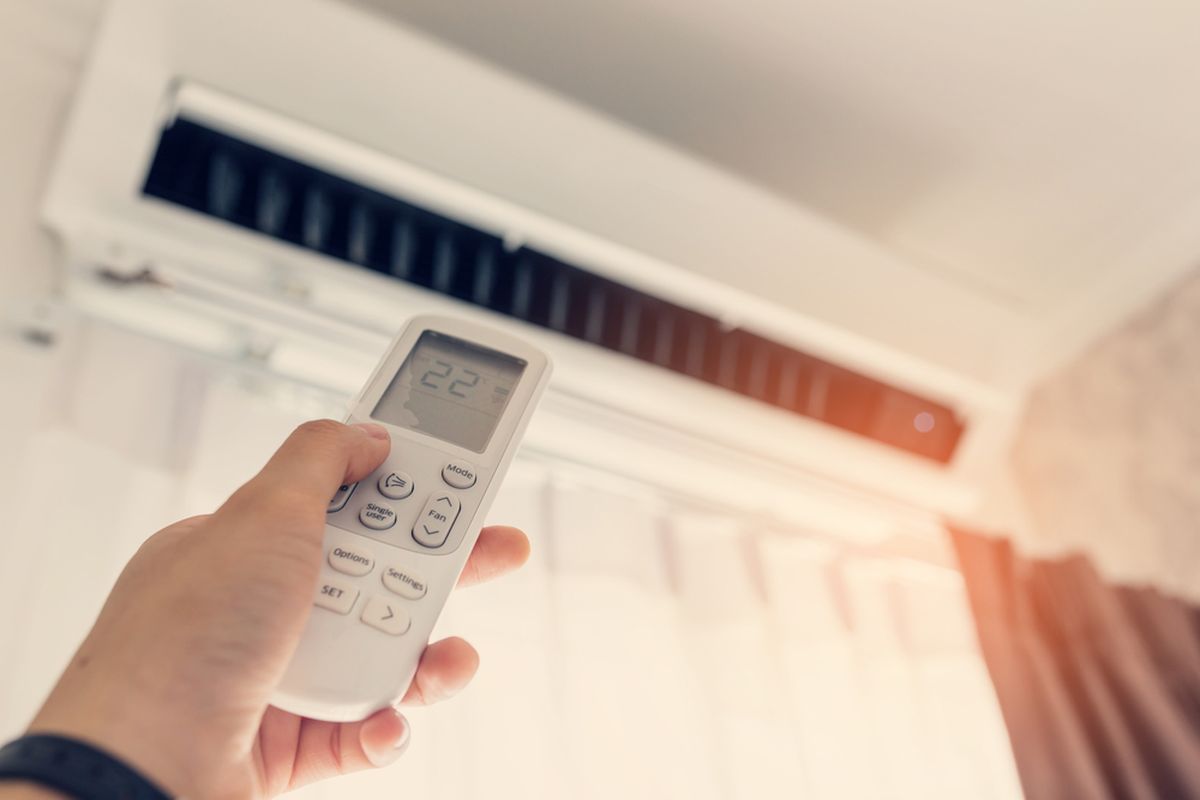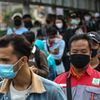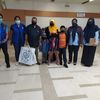Coronavirus Pandemic Makes Cooling Off from California Heatwave a Struggle

RANCHO CORDOVA, KOMPAS.com – The coronavirus pandemic has made cooling off from the California heatwave difficult for Debera Diaz and her son Joshua.
Air-conditioned public venues have shut down making it inaccessible to cool down inside malls and movie theaters.
Their town of Sacramento was facing dangerously high temperatures of 109 degrees Fahrenheit last week.
The mother-son duo has been living in Debera’s Honda Civic for a few months following her divorce and eviction.
Read also: Tourist Attractions and Malls in Jakarta Half-Empty Despite Reopening
Nowadays, they are grateful to find a cooling center in City Hall, complete with masks, and “The Devil Wears Prada” movie playing.
"You can't even go to the library," said Diaz, 58. "It was really bad."
The coronavirus pandemic presents vexing challenges for officials trying to protect residents from extreme weather conditions.
Many places people usually go are closed, and public cooling centers like the one in Rancho Cordova can only accept half the normal number of people because of physical distancing requirements.
Staying with relatives or friends is also difficult because of health concerns.
Read also: Health Experts Say Convalescent Plasma Therapy Require More Studies
At the same time, however, officials worry that fears of catching the virus will keep some vulnerable people from seeking shelter from extreme heat, or even seeking out evacuation centers when wildfire threatens.
Protecting residents from extreme conditions is an issue that increasingly confronts cities and counties across the United States, as storms, heat and wildfire force thousands to seek refuge.
Many experts are even more concerned about how to shelter vulnerable residents from extreme cold should the pandemic still be raging in the winter.
"It's changed how we approach this as a city," Rancho Cordova Mayor David Sander said of the pandemic. In previous years, churches and nonprofits opened their doors to people seeking shelter, but now many are either closed or unable to help, he said.
The city's cooling center, set up in a large meeting room, can only accommodate 10 people before workers have to open an adjoining room, Sander said. That is half or less than its usual capacity.
The city is not taking the temperatures of everyone who comes in but asks anyone with a self-reported fever to stay away.
Among those most likely to suffer from extreme weather are people without homes like the Diazes, and the elderly on fixed incomes who might not have air conditioning or, if they do, may feel that they can't afford to use it, said Mary Jo Flynn-Nevins, the emergency operations coordinator for Sacramento County.
Public agencies opened eight cooling centers in the county during last week's heatwave, each able to accommodate between 10 and 40 people, she said.
With more than 5,500 people homeless in Sacramento County last year, and around 225,000 elderly, space for residents to shelter from harsh weather can quickly run short, Flynn-Nevins said.
Statewide, cooling centers were opened in 24 of California's 58 counties, according to the California Department of Emergency Services.
The administration of Democratic Governor Gavin Newsom did not respond to requests for comment about the challenges of offering respite from the heat during the pandemic.
Read also: Joe Biden Endorsed by US Democrats to Face Donald Trump in November Election
But the state has encouraged residents to limit their use of electricity to avoid overtaxing the power grid and prompting blackouts.
When the temperature neared 100 Fahrenheit in the Sherman Oaks section of Los Angeles, Magdalay Arriola went to the East Valley Adult Center, where she sat with a water bottle and portable lunch cooler, reading a book.
About 10 people, 6 feet apart and wearing masks, sat in the air-conditioned room. Employees in protective suits cleaned tables and chairs with disinfectant.
"The AC is not working in my house, and I was getting really overheated," said Arriola, 55. "Hopefully this is safe."
Her worry that the cooling center may not be safe from Covid-19 is common, said Chad Carter, a spokesman for the Red Cross.
People also worry they may spread or contract the virus if they seek shelter with friends or family.
But they also must recognize the dangers of soaring temperatures, which include heat exhaustion and heat stroke.
"Extreme heat is a risk just like Covid-19," he said. "Extreme heat can be deadly."
(Writers: Sharon Bernstein, Lucy Nicholson | Editor: Cynthia Osterman)
Simak breaking news dan berita pilihan kami langsung di ponselmu. Pilih saluran andalanmu akses berita Kompas.com WhatsApp Channel : https://www.whatsapp.com/channel/0029VaFPbedBPzjZrk13HO3D. Pastikan kamu sudah install aplikasi WhatsApp ya.

































